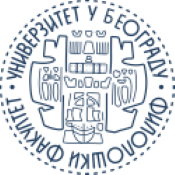Design and Implementation of a Lesson Plan of the Catalan Language, Culture and Literature at the University of Toulouse
DOI:
https://doi.org/10.18485/beoiber.2018.2.1.12Abstract
This article describes the process of designing and implementing a unique four-week lesson plan that enables the students to put into practice all the knowledge acquired during the academic year, by using a series of cultural materials like videos, readings, etc. This experience takes place every year at the University of Toulouse Jean Jaurès, within the framework of Catalan language classes aimed at specialists from other disciplines (LANSAD).The starting point is Sant Jordi’s Day, a representative Catalan tradition and a culture date, in which literary works play an eminent role. The importance of books provides a unique opportunity to introduce to our various levels of LANSAD the work and the figure of different current Catalan writers, preferably polyhedral and complex authors, who represent several literary genres. The choice of an author still alive allows us to emphasize the contemporaneous nature of literature to our students.This lesson plan is implemented taking into account previous student knowledge and upholding the specific pedagogical objectives of each group. At the end of the unit, students will have explored the biography and works of the selected writer. In addition, a final meeting with the author will give learners the opportunity to exchange with him or her all those hypotheses and questions that arose during the lessons.Key words: didactics, Catalan, culture, language, literature.References
Consell d'Europa. Common european framework for languages: learning, teaching, assessment. Estrasburg: Consell d'Europa, 2001. (Traducció catalana: Marc europeu comú de referència per a les llengües: aprendre, ensenyar, avaluar. Barcelona: Generalitat de Catalunya, Govern d'Andorra i Govern de les Illes Balears, 2003). Web. 27 Gen. 2017.
Fusté, Roger. «Que peut-on apprendre du GFEN?». Journée d’études Quelles innovations pedagògiques pour l’apprentissage des langues? Lille, 27/03/2015. Inédito.
Germain, Claude. Évolution de l’enseignement des langues: 5000 ans d’histoire. Paris: CLE International, 1993. Impreso.
Guix, Gerard. La deriva dels continents. Barcelona: Angle Editorial, 2005. Impreso.
—. Tot el que hauries de saber abans d’estimar-me. Barcelona: Columna Edicions, 2011. Impreso.
—. El Prodigi. Barcelona: Estrella Polar, 2011. Impreso.
—. L’Enginy. Barcelona: Estrella Polar, 2011. Impreso.
—. El Talent. Barcelona: Estrella Polar, 2012. Impreso.
—. El cementiri. Barcelona: Columna Edicions, 2013. Impreso.
Fusté, Roger. «Que peut-on apprendre du GFEN?». Journée d’études Quelles innovations pedagògiques pour l’apprentissage des langues? Lille, 27/03/2015. Inédito.
Germain, Claude. Évolution de l’enseignement des langues: 5000 ans d’histoire. Paris: CLE International, 1993. Impreso.
Guix, Gerard. La deriva dels continents. Barcelona: Angle Editorial, 2005. Impreso.
—. Tot el que hauries de saber abans d’estimar-me. Barcelona: Columna Edicions, 2011. Impreso.
—. El Prodigi. Barcelona: Estrella Polar, 2011. Impreso.
—. L’Enginy. Barcelona: Estrella Polar, 2011. Impreso.
—. El Talent. Barcelona: Estrella Polar, 2012. Impreso.
—. El cementiri. Barcelona: Columna Edicions, 2013. Impreso.
Downloads
Published
2018-05-29
How to Cite
Vidal Arráez, J. “Design and Implementation of a Lesson Plan of the Catalan Language, Culture and Literature at the University of Toulouse”. BEOIBERÍSTICA - Journal of Iberian, Latin American and Comparative Studies (ISSN: 2560-4163 Online), vol. 2, no. 1, May 2018, pp. 181-92, doi:10.18485/beoiber.2018.2.1.12.
Issue
Section
DIDACTICS
License
Copyright (c) 2018 Josep Vidal Arráez

This work is licensed under a Creative Commons Attribution-ShareAlike 4.0 International License.
Authors who publish with this journal agree to the following terms:
- Authors retain copyright and grant the journal right of first publication with the work simultaneously licensed under a Creative Commons Attribution-ShareAlike 4.0 International License that allows others to share the work with an acknowledgement of the work's authorship and initial publication in this journal.
- Authors are able to enter into separate, additional contractual arrangements for the non-exclusive distribution of the journal's published version of the work (e.g., post it to an institutional repository or publish it in a book), with an acknowledgement of its initial publication in this journal.
- Authors are permitted and encouraged to post their work online (e.g., in institutional repositories or on their website) prior to and during the submission process, as it can lead to productive exchanges, as well as earlier and greater citation of published work (See The Effect of Open Access).













